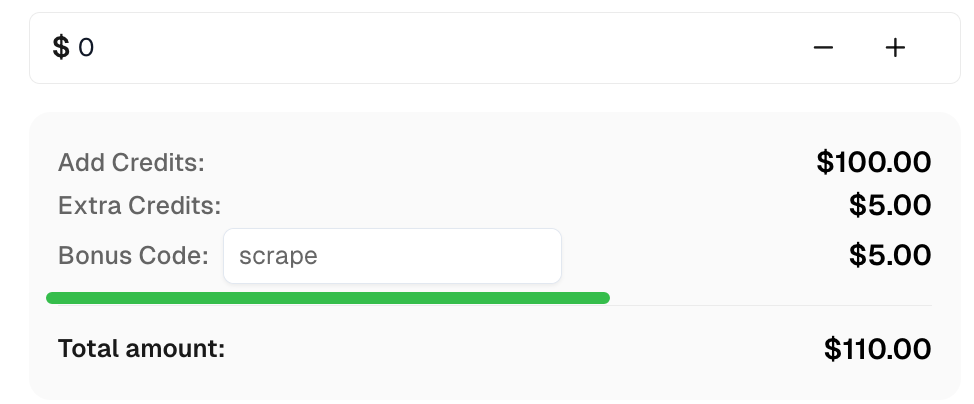How to Use geziyor for Web Scraping

Aloísio Vítor
Image Processing Expert
27-Sep-2024
Geziyor: A Powerful Web Scraping Framework for Go
Geziyor is a modern web scraping framework for Go, designed to offer powerful tools for scraping websites and extracting data efficiently. Unlike many traditional scraping libraries, Geziyor emphasizes ease of use while providing highly customizable scraping workflows.
Key Features:
- Concurrency Support: It supports asynchronous operations, allowing you to scrape multiple pages concurrently, which boosts performance.
- Request Customization: Easily modify HTTP requests, including headers, cookies, and custom parameters.
- Automatic Throttling: Helps avoid triggering anti-scraping mechanisms by pacing the requests to servers.
- Built-in Caching and Persistence: It supports caching scraped data and responses to avoid redundant requests.
- Extensibility: Offers hooks to extend functionality or handle events like request/response interception, custom middlewares, and more.
- Supports Proxies: Easily integrate proxies for rotating IPs or bypassing restrictions.
Prerequisites
To use Geziyor, ensure you have:
- Go 1.12+ installed from the official Go website.
- Basic knowledge of Go language.
Installation
To install Geziyor, you can run:
bash
go get -u github.com/geziyor/geziyorBasic Example: Web Scraping with Geziyor
Here is a simple example to scrape a website and print the titles of the articles:
go
package main
import (
"github.com/geziyor/geziyor"
"github.com/geziyor/geziyor/client"
"github.com/PuerkitoBio/goquery"
"log"
)
func main() {
geziyor.NewGeziyor(&geziyor.Options{
StartURLs: []string{"https://news.ycombinator.com"},
ParseFunc: func(g *geziyor.Geziyor, r *client.Response) {
r.HTMLDoc.Find(".storylink").Each(func(i int, s *goquery.Selection) {
log.Println(s.Text())
})
},
}).Start()
}Advanced Example: Scraping with Custom Headers and POST Requests
Sometimes, you need to simulate a more complex interaction with the server, like logging in or interacting with dynamic websites. In this example, we will show how to send a custom header and a POST request.
go
package main
import (
"github.com/geziyor/geziyor"
"github.com/geziyor/geziyor/client"
"log"
)
func main() {
geziyor.NewGeziyor(&geziyor.Options{
StartRequestsFunc: func(g *geziyor.Geziyor) {
g.Do(&client.Request{
Method: "POST",
URL: "https://httpbin.org/post",
Body: []byte(`{"username": "test", "password": "123"}`),
Headers: map[string]string{
"Content-Type": "application/json",
},
})
},
ParseFunc: func(g *geziyor.Geziyor, r *client.Response) {
log.Println(string(r.Body))
},
}).Start()
}Handling Cookies and Sessions in Geziyor
You might need to manage cookies or maintain sessions during scraping. Geziyor simplifies cookie management by automatically handling cookies for each request, and you can also customize the cookie handling process if needed.
go
package main
import (
"github.com/geziyor/geziyor"
"github.com/geziyor/geziyor/client"
"log"
)
func main() {
geziyor.NewGeziyor(&geziyor.Options{
StartRequestsFunc: func(g *geziyor.Geziyor) {
g.Do(&client.Request{
URL: "https://httpbin.org/cookies/set?name=value",
})
},
ParseFunc: func(g *geziyor.Geziyor, r *client.Response) {
log.Println("Cookies:", r.Cookies())
},
}).Start()
}Using Proxies with Geziyor
To scrape a website while avoiding IP restrictions or blocks, you can route your requests through a proxy. Here's how to configure proxy support with Geziyor:
go
package main
import (
"github.com/geziyor/geziyor"
"github.com/geziyor/geziyor/client"
"log"
)
func main() {
geziyor.NewGeziyor(&geziyor.Options{
StartRequestsFunc: func(g *geziyor.Geziyor) {
g.Do(&client.Request{
URL: "https://httpbin.org/ip",
Proxy: "http://username:password@proxyserver:8080",
})
},
ParseFunc: func(g *geziyor.Geziyor, r *client.Response) {
log.Println(string(r.Body))
},
}).Start()
}Handling Captchas with Geziyor
While Geziyor doesn’t natively solve captchas, you can integrate it with a captcha-solving service such as CapSolver. Here's how you can use CapSolver to solve captchas in conjunction with Geziyor.
Example: Solving ReCaptcha V2 Using Geziyor and CapSolver
First, you need to integrate CapSolver and handle requests for captcha challenges.
go
package main
import (
"encoding/json"
"github.com/geziyor/geziyor"
"github.com/geziyor/geziyor/client"
"log"
"time"
)
const CAPSOLVER_KEY = "YourKey"
func createTask(url, key string) (string, error) {
payload := map[string]interface{}{
"clientKey": CAPSOLVER_KEY,
"task": map[string]interface{}{
"type": "ReCaptchaV2TaskProxyLess",
"websiteURL": url,
"websiteKey": key,
},
}
response, err := client.NewRequest().
Method("POST").
URL("https://api.capsolver.com/createTask").
JSON(payload).
Do()
if err != nil {
return "", err
}
var result map[string]interface{}
json.Unmarshal(response.Body, &result)
return result["taskId"].(string), nil
}
func getTaskResult(taskId string) (string, error) {
payload := map[string]interface{}{
"clientKey": CAPSOLVER_KEY,
"taskId": taskId,
}
for {
response, err := client.NewRequest().
Method("POST").
URL("https://api.capsolver.com/getTaskResult").
JSON(payload).
Do()
if err != nil {
return "", err
}
var result map[string]interface{}
json.Unmarshal(response.Body, &result)
if result["status"] == "ready" {
return result["solution"].(string), nil
}
time.Sleep(5 * time.Second)
}
}
func main() {
geziyor.NewGeziyor(&geziyor.Options{
StartRequestsFunc: func(g *geziyor.Geziyor) {
taskId, _ := createTask("https://example.com", "6LcR_okUAAAAAPYrPe-HK_0RULO1aZM15ENyM-Mf")
solution, _ := getTaskResult(taskId)
g.Do(&client.Request{
Method: "POST",
URL: "https://example.com/submit",
Body: []byte(`g-recaptcha-response=` + solution),
})
},
ParseFunc: func(g *geziyor.Geziyor, r *client.Response) {
log.Println("Captcha Solved:", string(r.Body))
},
}).Start()
}Performance Optimizations with Geziyor
Geziyor excels at handling high-volume scraping tasks, but performance can be further optimized by adjusting certain options:
- Concurrency: Increase
ConcurrentRequeststo allow multiple parallel requests. - Request Delay: Implement a delay between requests to avoid detection.
Example with concurrency and delay:
go
package main
import (
"github.com/geziyor/geziyor"
"github.com/geziyor/geziyor/client"
)
func main() {
geziyor.NewGeziyor(&geziyor.Options{
StartURLs: []string{"https://example.com"},
ParseFunc: func(g *geziyor.Geziyor, r *client.Response) {},
ConcurrentRequests: 10,
RequestDelay: 2,
}).Start()
}Bonus Code
Claim your Bonus Code for top captcha solutions at CapSolver: scrape. After redeeming it, you will get an extra 5% bonus after each recharge, unlimited times.

Conclusion
Geziyor is a powerful, fast, and flexible web scraping framework for Go, making it a great choice for developers looking to build scalable scraping systems. Its built-in support for concurrency, customizable requests, and the ability to integrate with external services like CapSolver make it an ideal tool for both simple and advanced scraping tasks.
Whether you're collecting data from blogs, e-commerce sites, or building custom scraping pipelines, Geziyor has the features you need to get started quickly and efficiently.
Compliance Disclaimer: The information provided on this blog is for informational purposes only. CapSolver is committed to compliance with all applicable laws and regulations. The use of the CapSolver network for illegal, fraudulent, or abusive activities is strictly prohibited and will be investigated. Our captcha-solving solutions enhance user experience while ensuring 100% compliance in helping solve captcha difficulties during public data crawling. We encourage responsible use of our services. For more information, please visit our Terms of Service and Privacy Policy.
More

How to Solve CAPTCHAs in Python Using Botasaurus and CapSolver (Full Guide)
Learn to integrate Botasaurus (Python web scraping framework) with CapSolver API to automatically solve reCAPTCHA v2/v3 and Turnstile.

Lucas Mitchell
12-Dec-2025

What are 402, 403, 404, and 429 Errors in Web Scraping? A Comprehensive Guide
Master web scraping error handling by understanding what are 402, 403, 404, and 429 errors. Learn how to fix 403 Forbidden, implement rate limiting error 429 solutions, and handle the emerging 402 Payment Required status code.

Sora Fujimoto
11-Dec-2025

Best Web Scraping APIs in 2026: Top Tools Compared & Ranked
Discover the best Web Scraping APIs for 2026. We compare the top tools based on success rate, speed, AI features, and pricing to help you choose the right solution for your data extraction needs.

Ethan Collins
11-Dec-2025

CapSolver Extension: Effortlessly Solve Image Captcha and ImageToText Challenges in Your Browser
Use the CapSolver Chrome Extension for AI-powered, one-click solving of Image Captcha and ImageToText challenges directly in your browser.

Lucas Mitchell
11-Dec-2025

Cloudflare Challenge vs Turnstile: Key Differences and How to Identify Them
nderstand the key differences between Cloudflare Challenge vs Turnstile and learn how to identify them for successful web automation. Get expert tips and a recommended solver.

Lucas Mitchell
10-Dec-2025

How to Solve AWS Captcha / Challenge with PHP: A Comprehensive Guide
A detailed PHP guide to solving AWS WAF CAPTCHA and Challenge for reliable scraping and automation

Rajinder Singh
10-Dec-2025

